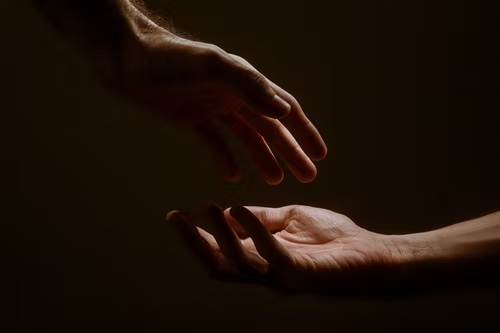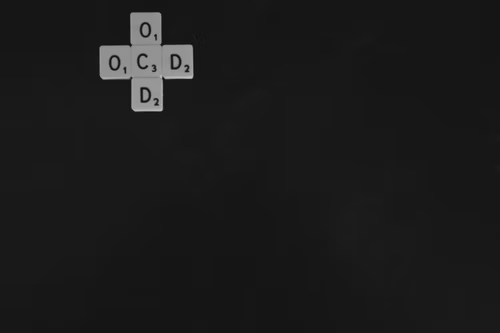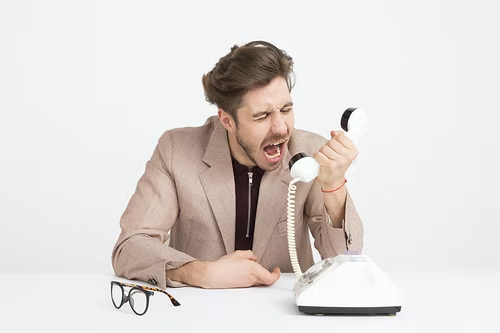8 Easy Ways To Calm Down Without Drugs
Do you feel nervous or on edge too often? Sometimes we feel out of control when it comes to stress and anxiety. But, it's likely those feelings are a result of our attempts to take control. The reality is that many of us try to numb the pain with drugs and alcohol because we do not know what else to do. Here are eight ways you may be able to calm down without drugs.
1. Shout it out
Shouting is an easy way to calm down without drugs. It is a self-help method that can help you to release tension and stress. As a matter of fact, the concept of “shouting out” has been used by many people over the years. Shouting out can be done in a vacant environment like a mountain or even an abandoned building.
It is also recommended that you take a deep breath before shouting out. This will help to prepare your body for the process of shouting out. You should also try to find a place where you won't disturb others around you while shouting out.
Hence, if you are feeling tense or stressed because of an upcoming event or work-related concerns, try shouting out instead of taking medication (which may have side effects).
2. Get moving
If you're feeling anxious or stressed, nothing is as effective at calming you down as moving your body.
You can do this by going for a walk outside. If the weather's nice, take advantage of it by going for a walk outside. You'll get fresh air and exercise, which will help you feel refreshed and relaxed.
Additionally, do some yoga or meditate. Yoga is great because it allows you to focus on your breathing and calm down without having to think about anything else. For meditation, simply sit in silence and focus on your breathing—you'll soon find that the world around you becomes less stressful.
You can also go for a run or do some other form of cardiovascular exercise. There's nothing better than getting out there and working up a sweat! Plus, once you've finished exercising, you'll feel energized and ready to take on whatever comes next!
3. Break up with caffeine
On the surface, it may seem like a simple decision. You need to cut back on caffeine.
But in reality, breaking up with your morning coffee is one of the easiest ways to calm down without drugs.
The problem with coffee isn't just that it's addictive, it's that it keeps you awake too late and suppresses your natural sleep patterns. It makes you groggy in the morning and keeps you from getting enough rest at night.
Caffeine also makes it harder for you to concentrate, which can lead to problems in work. And if you don't know, caffeine also increases the risk of heart arrhythmia and other health problems when consumed in excess amounts. These reasons can highly contribute to your anxiety so try your best to cut back with caffeine gradually.
4. Give yourself a bedtime
That's right, it's not just for kids! When you're feeling especially anxious, try giving yourself a bedtime in which you can wind down and relax right before bed. Turn off all of your electronics, set an alarm that tells you when it's time to go to sleep, and then get into bed with a book (preferably something with really nice fonts) or a magazine. You can also make this process even more effective by dimming the lights in your bedroom so they're not too bright or turning on some soothing music.
This simple practice has many benefits. First it helps prevent insomnia and encourages better sleep quality.
It can also lower stress levels by engaging the parasympathetic nervous system (which is responsible for relaxation). More importantly, it promotes positive thoughts about yourself which have been shown to decrease anxiety levels.
5. Feel OK saying no
It is not easy to say no without feeling guilty however not doing so might worsen your anxiety and it will be hard for you to calm down due to overwhelming feeling.
With this, you can of course stop saying yes. If you have a tendency to agree to things before thinking them through, reframe your approach. Instead of “yes”ing to everything that's thrown at you, try saying “no” with a smile and a reason why.
You can also give yourself some space. Think about what really matters in your life and focus on those activities. If someone is asking you to do something out of the ordinary — like going out for dinner with them — be sure it's something that matters to you.
Nevertheless, this doesn't mean that you should never say yes—but if something seems like too much of a hassle or just not fun for you, then it probably isn't worth doing.
6. Don’t skip meals
If you want to calm down without drugs, then it is important that you eat well. If you do not eat, your body will feel weak and tired. You will become more stressed and can not think straight. In addition, if you are hungry, then your blood sugar levels may drop too low as well. This can make you feel dizzy or light-headed.
The best way to avoid these side effects of skipping meals is to eat regularly throughout the day and make sure that each meal includes protein and healthy fats. Your body needs protein for energy and healthy fats for brain health, so be sure to include these in each meal!
You should also drink plenty of water throughout the day because dehydration can cause symptoms such as headaches or fatigue which could lead to stress or anxiety if left untreated.
7. Give yourself an exit strategy
One of the things you can do when something is making you feel stressed and anxious is to give yourself an exit strategy. You can't just leave and hope for the best—you have to be prepared, or else it will end up looking like you're running away from something.
When we feel overwhelmed by our emotions and stress, we tend to shut down entirely because we don't want to deal with the situation anymore.Knowing your limits is one of the emergency exits you can practice. Moreover, if you know someone who has done something similar in the past, ask them how they dealt with their fears and anxiety. This will help you figure out how much time it took them before they were able to come back from their own personal hells and get back into their normal routine again.
Another emergency strategy is finding ways to distract yourself from whatever has been causing these negative feelings within yourself until those feelings go away completely so that everything feels normal again without any kind of side effects from taking any type of medication whatsoever!
8. Meditate
Meditation is a mental exercise that can help you relax and manage stress in your life. It is a practice that involves sitting quietly with eyes closed and focusing your attention on breathing or repeating a mantra (a word or phrase). People who meditate say it helps them to relax, gain clarity and feel less stressed.
There are many types of meditation, but most involve sitting quietly with eyes closed and focusing your attention on breathing or repeating a mantra (a word or phrase). You may also use guided imagery — visualizing yourself in a peaceful place — to help achieve a relaxed state.
Studies show that meditation can have positive effects on both mental and physical health. Some people use meditation as part of their treatment for anxiety disorders, depression or other mental health conditions. As a matter of fact, Meditation has also been shown to lower blood pressure and heart rate, improve immune function and reduce pain perception.
When under the duress of an anxiety attack, there is no need to reach for drugs. Instead, try some of these natural options that can have just as much of an effect in your time of need.
For more helpful and informative insights, visit here.





